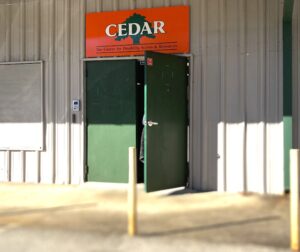
The Center for Disability Access and Resources (CEDAR) is positioned to aid students with learning, psychological and physical disabilities.
CEDAR is a resource center to provide support-programs and reasonable accommodations to students who seek help to broaden their skills and to gain personal, academic and professional development.
There are currently more than 600 students who are registered with the CEDAR office. The center administers service to the main campus as well as satellite campuses.
The program director, Deborah Sullivan, is an advocate for students.
“Our mission is to provide enriching support programs, services and reasonable accommodations to students with disabilities. We also try to foster a sense of empowerment by educating them about their legal rights and responsibilities. We want them to make informed choices, be critical thinkers and self-advocate, and then we want to make sure our students have the same access to programs, opportunities and activities available to any other student at Florida A&M University,” she said.
I’m a student who was diagnosed with Attention-Deficit/Hyperactivity Disorder and a learning disability for math. I never was incapable of learning material that other students had learned, I just tend to learn, process and perform at my own gradual pace, as opposed to the average student who performs at a faster rate.
Tia Huie, a registered CEDAR student and work-study facilitator at the center, shared her perspective.
“I feel like the center has an impact on me because, at first, I was not a CEDAR student. You have those students who have learning disabilities and when you think about how hard and time-consuming college work can be, to have a place that helps them through the process is empowering,” she said.
This is inclusive too: extra time on tests, transport mobility, different testing locations, tape recordings, tutoring and other support services.
The CEDAR office has done a persistent, commendable job in assisting me; from providing a safe space, extra time on tests, free printing, computer usage, and accommodating me with letters to inform my professors about my academic needs.
The program outreach coordinator, Joshua Lowder, gave more insight on what his duties are as it pertains to assisting registered CEDAR students.
“I work here as the program outreach coordinator, and what I do is work with incoming freshmen and also work with sophomores that are here from the College Study Skills Institute (CSSI), and how I help them is I plan different activities and also help plan things around what CEDAR does, in terms of student game nights or student engagement and I try to also work on community pieces to help us bridge the gap and let people know we are here at the university to help students who may have learning, physical, psychological, cognitive or mental disabilities,” he said.